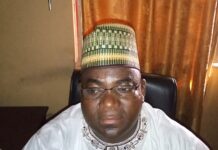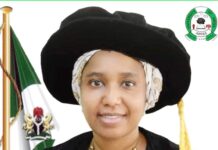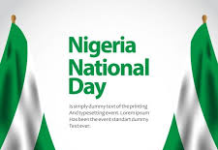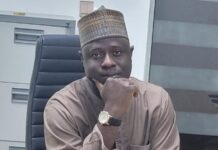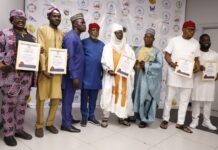Title: Moving Nigeria Forward: Embracing Unity Beyond Religious Sentiment, By Saleh Shehu Ashaka
Religious sentiment has long been a formidable force shaping the social, cultural, and political fabric of Nigeria. While religion can be a unifying force, its misuse and manipulation have hindered the country’s progress and undermined the true essence of unity. If Nigeria is to move forward and unlock its full potential, it is imperative that we transcend the barriers of religious sentiment and embrace a more inclusive and secular approach to governance and societal development.
Nigeria, a nation blessed with diverse religious beliefs, has often witnessed tensions and conflicts fueled by religious differences. These divisions have impeded progress, stifled economic growth, and perpetuated a cycle of animosity and mistrust among its citizens. Instead of harnessing the power of diversity, religious sentiment has been exploited as a tool for political gain, communal violence, and discrimination.
To create a brighter future for Nigeria, we must prioritize national unity above all else. This means promoting a sense of collective identity that transcends religious affiliations. It requires fostering an environment where citizens can freely practice their faith while recognizing and respecting the rights of others. In doing so, we can overcome the polarization that hinders our progress and forge a path towards a united, inclusive, and prosperous Nigeria.
Read Also:
One of the key challenges in overcoming religious sentiment is the dangerous overlap of religion and politics. Religion should be a personal matter, guiding individuals in their moral conduct and personal beliefs, but it should never dominate or dictate governmental decisions. A secular approach to governance, where the state remains neutral and guarantees freedom of religion for all, is essential for a thriving democracy. By establishing a clear separation between religious institutions and the state, we can ensure equal treatment and representation for all Nigerians, irrespective of their religious background.
Education plays a pivotal role in dismantling religious sentiments and fostering a more inclusive society. Introducing comprehensive educational reforms that promote religious tolerance, diversity, and critical thinking is crucial. By incorporating religious studies that highlight the similarities and shared values across faiths, we can foster empathy, understanding, and mutual respect among the younger generation.
Furthermore, leaders at all levels of society must champion unity and inclusivity. Political, religious, and community leaders have a responsibility to rise above their personal biases and divisive rhetoric. They should emphasize the common national agenda, economic development, social welfare, and equal opportunities for all citizens, irrespective of their religious beliefs. Encouraging interfaith dialogue, collaboration, and partnerships can also play a pivotal role in bridging divides and fostering empathy among different religious communities.
In conclusion, Nigeria’s progress depends on our ability to transcend religious sentiments and embrace a more inclusive approach to governance and societal development. By prioritizing national unity, promoting secularism, investing in education, and fostering interfaith dialogue, we can build a stronger, more harmonious Nigeria. It is time to move beyond religious divisions and work hand-in-hand towards a future where every Nigerian can prosper and thrive.






